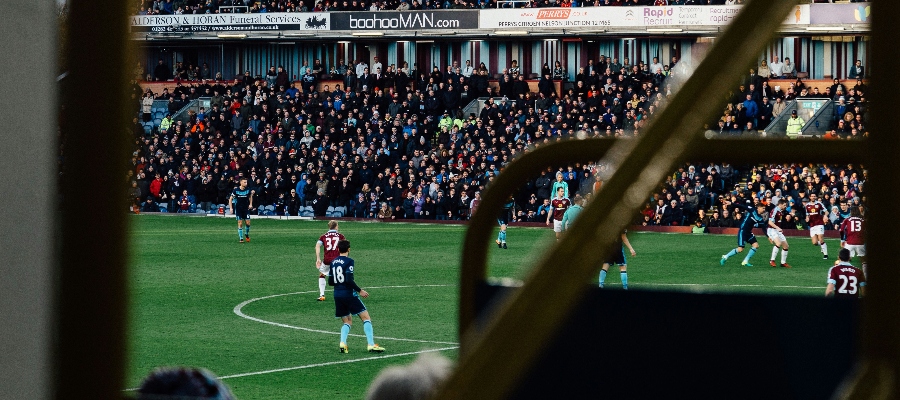Growing Role of Private Entity in Football: Opportunities and Challenges
The intersection of private equity (PE) and football has revolutionized how the sport operates financially and structurally. Historically reliant on match-day revenues, broadcasting rights, and sponsorship deals, football clubs are now increasingly turning to PE as a critical driver of growth, modernization, and sustainability. This shift marks a pivotal moment where institutional capital is supplementing—and in many cases, redefining—legacy funding models.
Private equity’s growing role has sparked significant conversations among stakeholders, from fans and club owners to regulators and investors, about its influence on the sport’s integrity and future. Private equity is no longer just a financial backer; it has become a strategic partner driving innovation, modernization, operational efficiency, professionalism, and global expansion.
A Strategic Partnership and a Game Changer
From club acquisitions to media rights partnerships and infrastructure projects, PE is reshaping football’s financial and competitive landscape, positioning the sport for a new era of sustainability and success, and becoming a game changer:
- Football as a high-growth investment opportunity: Private equity funds have traditionally focused on high-growth sectors like technology and healthcare. However, football’s unique combination of global appeal, deeply loyal fan bases, and the rapid commercialization of the sport has made it a compelling target for institutional investors. Whether through acquiring ownership stakes in clubs, partnering with leagues to monetize media rights, or financing large-scale infrastructure projects, private equity firms are fundamentally reshaping football’s financial and operational landscape.
- Private Equity’s growing presence in football: Private equity is no longer a secondary player in the sports world. Football, with its unparalleled global reach and year-round engagement, has become an increasingly attractive sector for sophisticated investors. For private equity firms, football presents a dual opportunity: generating significant financial returns while enhancing the competitive edge of their portfolio investments. Recent years have seen a surge in private equity transactions, from club acquisitions to innovative media rights partnerships. These investments are not limited to elite clubs or major leagues—PE funds are also targeting growth opportunities in underdeveloped football markets, reflecting a diversified and strategic approach to the sector.
- The Catalyst: Financial strain in a post-pandemic landscape: The COVID-19 pandemic served as a wake-up call for the football industry, exposing the fragility of traditional revenue streams such as match-day income and broadcasting fees. Many clubs, even in top-tier leagues, faced significant financial strain, forcing them to reassess their reliance on legacy funding models. This created an unprecedented opening for private equity to step in as a stabilizing force, providing much-needed liquidity during a period of uncertainty.
- Liquidity and strategic value for clubs: For football clubs, particularly those in financial distress, private equity offers more than just capital—it provides a pathway to long-term sustainability. PE funds enable clubs to restructure burdensome debt, invest in state-of-the-art facilities, and refine commercial strategies to unlock new revenue streams. This financial injection is often accompanied by expertise in corporate governance and operational management, ensuring that clubs can capitalize on their newfound stability.
- Bridging the financial gap: Football’s traditional financing models—primarily reliant on broadcasting deals, sponsorship contracts, and ticket sales—have struggled to keep pace with the escalating costs of competing at the highest levels. Private equity has emerged as a vital solution, addressing this gap by offering both financial resources and strategic insights. Through PE involvement, clubs can achieve financial resilience and operational modernization, enabling them to compete in an increasingly globalized and commercialized environment.
- Beyond liquidity: Strategic edge of PE: Private equity firms do more than inject capital—they bring a level of discipline and innovation that traditional ownership structures often lack. By implementing robust management practices, streamlining operations, and adopting advanced analytics, PE investors are transforming clubs into commercially viable, globally competitive entities. The impact is not just financial: clubs benefit from enhanced fan engagement, improved on-field performance, and greater appeal to international markets.
In essence, private equity is redefining the business of football. Far from being a mere funding source, it has become a strategic partner, driving a new era of growth, professionalism, and global connectivity in the sport
Recent Private Equity Transactions in Football
Several high-profile deals in recent years illustrate the diverse ways in which PE is engaging with the football industry:
- CVC Capital Partners: Revolutionizing Media Rights in LaLiga: In 2021, CVC Capital Partners invested €2.1 billion in exchange for an 8.2% stake in LaLiga’s media rights business for the next 50 years. This strategic partnership provided participating clubs with immediate financial resources to invest in infrastructure, youth development, digital transformation, repay debt, and improve competitiveness. Notable benefits include: o Improved stadium facilities for fan engagement. o Strengthened financial stability for smaller clubs.
- Digital innovations, such as enhanced broadcasting experiences.
This partnership has not only strengthened LaLiga’s competitiveness but also set a precedent for other leagues like Serie A and Bundesliga to explore similar models. It represents how PE can help leagues unlock long-term revenue streams while maintaining operational control.
- RedBird Capital Partners: Elevating AC Milan: RedBird Capital’s €1.2 billion acquisition of AC Milan in 2022 is a model of how PE firms can amplify a club’s global brand. RedBird’s focus includes:o Developing a state-of-the-art stadium to drive match-day revenue. o Enhancing Milan’s commercial strategies to reach global markets.
- Leveraging analytics and technology to improve on-field performance.
RedBird’s approach builds on its earlier investments in Toulouse FC and Fenway Sports Group (owners of Liverpool FC). At Toulouse, the club achieved promotion to Ligue 1 and financial stability, demonstrating the replicability of RedBird’s investment model.
- Silver Lake: Transforming City Football Group: Silver Lake’s stake in City Football Group (CFG)—the owners of Manchester City and several other clubs worldwide—illustrates how PE can scale operations globally. CFG’s multiclub model emphasizes: o Centralized talent scouting and development. o Unified commercial strategies for sponsorships and partnerships.
- Advanced analytics to optimize player performance and fan engagement.
Silver Lake increased its stake in City Football Group (CFG), the holding company behind Manchester City and a global network of clubs. The CFG’s valuation, exceeding USD 5 billion, underscores the scalability and profitability of its multi-club model. Silver Lake’s involvement demonstrates how private equity can support global expansion while maintaining competitive performance.
- Ares Management: Supporting Atlético Madrid: Ares Management’s €181 million investment in Atlético Madrid in 2021 is a prime example of how private equity can provide immediate financial solutions while supporting long-term competitiveness. This strategic capital infusion highlights Ares’ role in stabilizing elite football clubs and enhancing their operational capacity. o Atlético leveraged the capital to refinance debt and invest in infrastructure projects, such as stadium improvements.
- Ensuring financial sustainability while maintaining the club’s ability to compete at the highest level.
While the Atlético Madrid deal is a cornerstone of its football investments, Ares Management has expanded its presence in the sport, addressing the financial challenges faced by clubs across Europe:
- Inter Milan Financing: In 2021, Ares provided a €275 million loan to Inter Milan, helping the Italian club navigate liquidity issues exacerbated by the COVID-19 pandemic. The funds stabilized operations while enabling continued investment in players and infrastructure.
- Exploration of MCO Opportunities: Ares is actively exploring investments in multi-club ownership (MCO)models, leveraging synergies in operations, scouting, and commercial strategies to maximize returns.
These transactions illustrate how private equity is redefining football finance, offering clubs and leagues not just capital but also the strategic insights needed to thrive in a competitive, globalized market. At Senn Ferrero, we help stakeholders navigate the complexities of these transformative partnerships, ensuring compliance, alignment, and long-term success.
Key Areas, Opportunities for Stakeholders and Challenges
Private equity’s influence in football spans critical areas such as club ownership, where multi-club models like those of Red
Bull and City Football Group streamline operations and global expansion; media rights monetization, as seen in the CVCLaLiga partnership, which leverages advanced marketing and distribution strategies; infrastructure investments in stadiums and training facilities to create sustainable revenue streams; data and technology integration to enhance performance and fan engagement; and youth development systems, which serve as both a talent pipeline and a revenue-generating mechanism in the transfer market
Private equity investments in football present transformative opportunities for clubs and leagues by addressing immediate financial needs while driving sustainable growth. These investments provide capital to reduce reliance on traditional debt, foster professional management practices, enable global expansion through innovative marketing and sponsorship strategies, and enhance competitiveness via investments in player development, infrastructure, and technology. However, these opportunities come with challenges, including addressing fan concerns about preserving club identity, balancing short-term financial returns with long-term sustainability, navigating regulatory scrutiny under financial fair play (FFP) rules, and managing risks from economic uncertainties such as market volatility and geopolitical pressures. For PE to succeed in football, strategic alignment with both financial and cultural objectives is essential.
The Road Ahead: The Future of PE in Football
Private equity is no longer just a source of capital in football —it has evolved into a strategic partner that drives sustainable growth, fosters innovation, and modernizes operations. With the right legal frameworks and governance models in place, private equity investments can position the sport for unprecedented global reach, inclusivity, and competitiveness.
Private equity’s growing influence in football is reshaping the industry, creating opportunities for financial innovation and operational transformation. However, success will depend on balancing profitability with preserving the sport’s cultural and community values.
At Senn Ferrero, we believe in the potential of PE to elevate football to new heights. Our team specializes in advising clubs, leagues, and investors on structuring deals, navigating regulations, and maximizing value. Whether you are a club seeking investment or a fund exploring opportunities, we are here to help you achieve your goals.
For more insights into private equity and its role in the football industry, reach out to our team at Senn Ferrero Asociados Sports & Entertainment, S.L.P.





